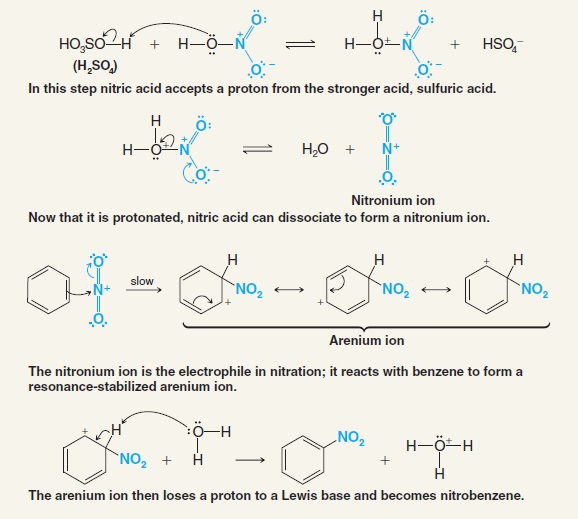Echoing Dissenter's comment, don't be hung up on the name "nitric acid" to mean that it can only release a proton. It's typical reactivity is as an acid, which is why it gained that name. Most compounds will change their reactivity under different reaction conditions. Take water for example. Under acidic conditions, such as when reacted with HCl, it will act as a base, becoming protonated to form hydronium. Under basic conditions, such as when reacted with butyl lithium, water will serve as an acid, being deprotonated to form hydroxide.
There also seems to be some confusion about acid-base concepts. Arrhenius theory considers compounds that increase hydrogen ion concentration to be acids and compounds that increase hydroxide concentration to be bases. That is a very limited definition. In the reaction between nitric acid and sulfuric acid, the Brønsted-Lowry concept is more useful. Brønsted-Lowry considers any compound that donates a proton (hydrogen ion) to be an acid (sulfuric acid here) and any compound that accepts a proton (nitric acid here) to be a base.

